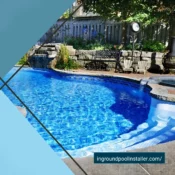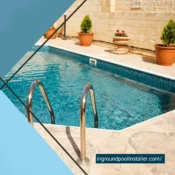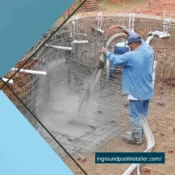Inground Pool Installer’s Guide to Different Pool Types for Your Home

Inground Pool Installer’s Guide to Different Pool Types for Your Home
Selecting the right inground pool installer for your residence necessitates a comprehensive understanding of the distinct characteristics each type offers. Concrete pools, renowned for their robustness, demand precision in structural design to ensure longevity and resilience. Conversely, fiberglass pools are favored for their expedited installation processes and minimal upkeep requirements. Vinyl liner pools, while offering unparalleled design flexibility, present an economical solution with specific maintenance considerations. Each pool type presents unique benefits and potential challenges. As a prospective pool owner, aligning your selection with your lifestyle and financial plan is paramount. What intricacies might sway your decision in one direction or another?
Concrete Pools
Concrete pools, renowned for their durability and versatility, are a popular choice among inground pool installations. These pools are constructed using a steel-reinforced framework, onto which a mixture of concrete and plaster is applied. This method, known as shotcrete or gunite application, allows for infinite customization in terms of shape, size, and depth, offering a bespoke aquatic experience that aligns with personal preferences and landscape considerations.
To ensure structural integrity, it is imperative to meticulously calculate the load-bearing capacity of the soil and design the steel framework accordingly. Proper curing of the concrete is crucial; it typically requires a minimum of 28 days to achieve optimal strength. During this period, maintaining adequate moisture levels is essential to prevent cracking and ensure a smooth finish.
From an aesthetic perspective, concrete pools can be finished with various materials such as tiles, pebbles, or colored plaster, providing limitless design possibilities. However, regular maintenance, including acid washing and resurfacing every 7-10 years, is necessary to preserve the pool's condition.
Concrete pools represent a substantial investment in both time and resources but offer enduring value and a sense of luxury that fosters community and belonging among family and friends.
Fiberglass and Vinyl Pools
Exploring the options of fiberglass and vinyl pools reveals two popular alternatives in the inground pool market, each offering distinct advantages and construction methodologies. Fiberglass pools are pre-molded shells composed of reinforced fiberglass, delivered intact to the installation site. This prefabrication results in expedited installation, commonly completed within a week. These pools are renowned for their durability and low maintenance, with a non-porous gel coat surface that resists algae growth and minimizes chemical usage. Additionally, fiberglass pools are compatible with saltwater systems, appealing to homeowners seeking a low-maintenance aquatic environment.
Conversely, vinyl liner pools consist of a customizable steel or polymer frame fitted with a vinyl liner. This flexibility offers design versatility, enabling bespoke shapes and sizes. The installation process involves assembling the frame onsite, followed by accurate liner placement, which typically takes two to three weeks. Vinyl pools are generally more cost-effective upfront, appealing to budget-conscious consumers. However, the liner requires periodic replacement approximately every 7 to 10 years, influencing long-term cost considerations.
Both options cater to diverse homeowner preferences, providing viable solutions for creating personalized backyard retreats that foster community, relaxation, and enjoyment among family and friends.
In evaluating inground pool installer options, it is imperative to consider the unique advantages and challenges of each type. Concrete pools, while highly customizable, demand precise engineering; fiberglass pools offer rapid installation and ease of maintenance; vinyl pools present a budget-friendly and flexible design solution. Notably, a study reveals that 65% of homeowners who installed fiberglass pools reported higher satisfaction due to low maintenance demands. This statistic underscores the importance of aligning pool choice with long-term maintenance preferences for optimal satisfaction.
All Categories
- Concrete
- Concrete
- Concrete pools
- Construction
- Custom Features and Add-ons
- Design
- Design
- Design
- Design & Construction
- Design and Planning
- Features & Customization
- Infinity edge
- inground pool
- inground pool builder
- inground pool installer
- Installation
- Installation Process
- Legal & Administrative
- Materials
- planning and design
- Pool Aesthetics and Customization
- Pool Design
- Pool Equipment
- Pool Features
- Pool Features
- Pool Installation Process
- Pool Materials
- Pool Materials
- Pool Types
- Project Planning
- Renovation
- Resurfacing
- top sights
- Types of Inground Pools
- Types of Inground Pools
- Types of Inground Pools
- Types of Inground Pools
- Water Treatment



